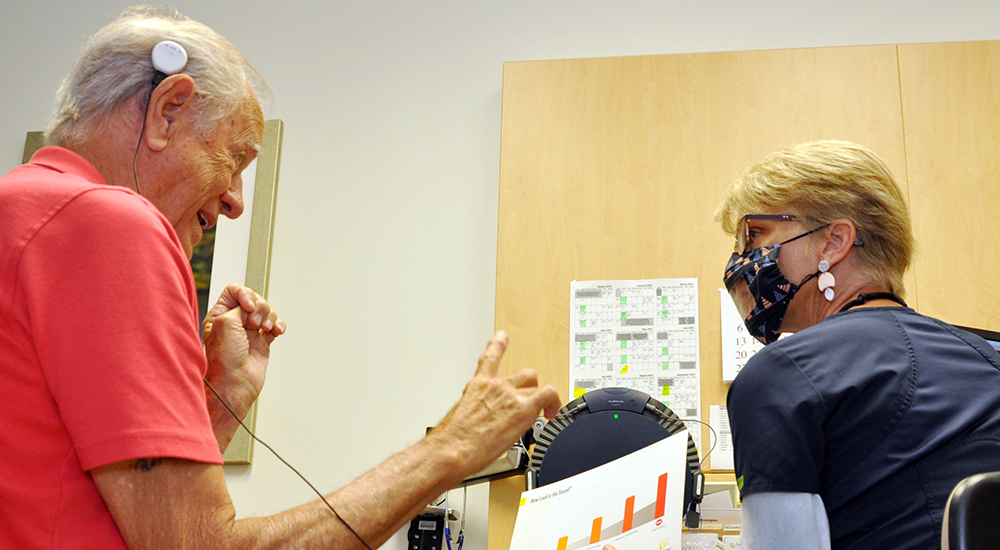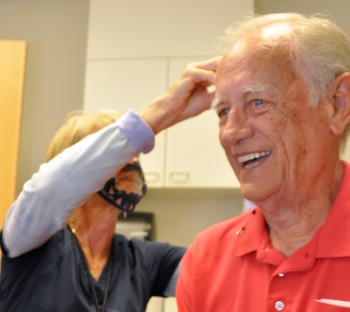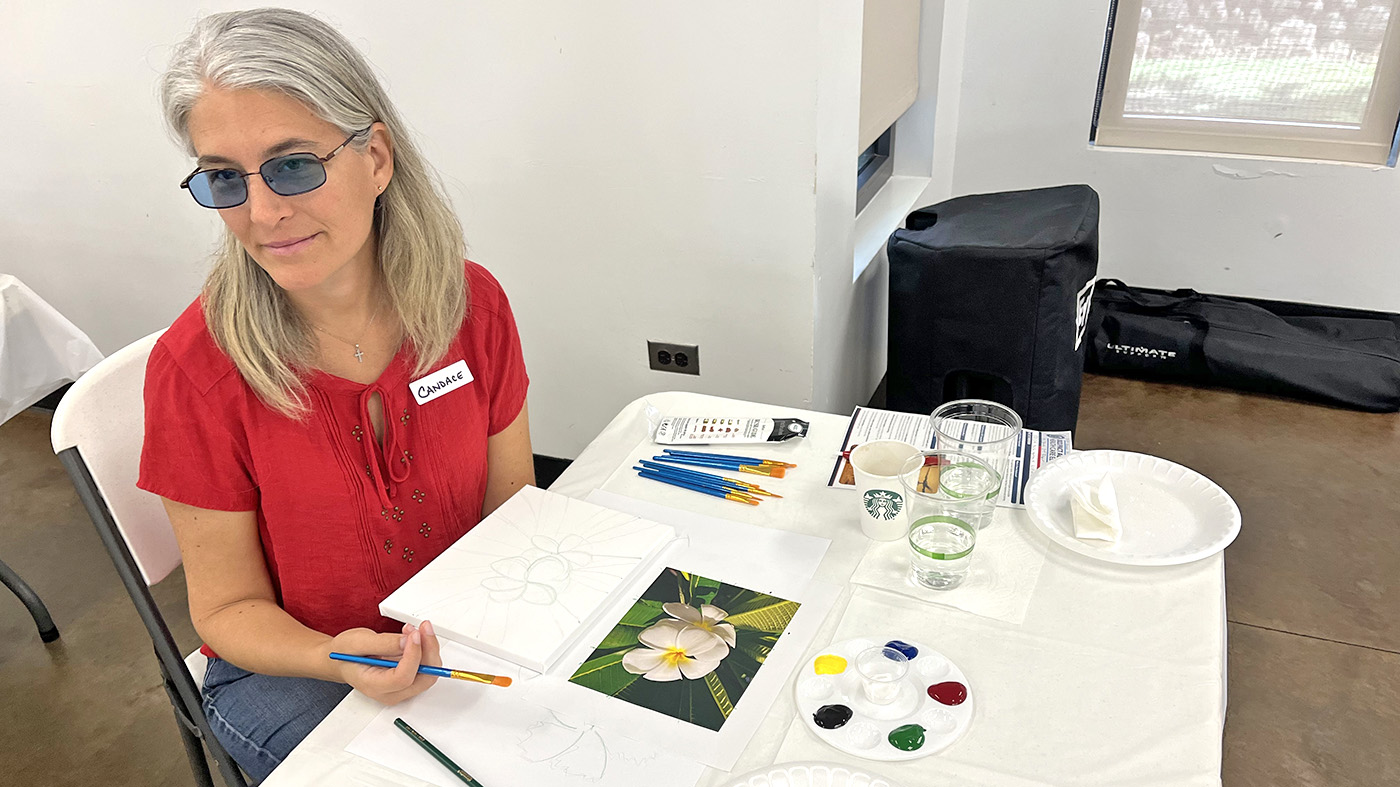Hearing loss is the most common service-connected disability for American Veterans. It is also a common problem among the general population, impacting more than half of Americans aged 75 or older.
Veterans who experienced a single explosion are at increased risk of permanent hearing loss. Sometimes, the damage can be managed with a traditional hearing aid, which acts like a microphone and amplifies sounds for the person wearing it. When the damage is too severe, hearing aids are limited in the amount of benefit they can provide.
Once a hearing aid no longer helps, a surgical option called a cochlear implant might be a possibility. A cochlear implant bypasses the damaged areas and directly stimulates hearing nerves which can bring more sound and more understanding to the brain.
Implant surgical center at New Orleans VA
In 2020, the Southeast Louisiana Veterans Health Care System opened a full cochlear implant surgical center at the New Orleans VA.
Hearing loss is an “invisible disability that can make a patient feel alone and drastically decrease their quality of life,” explained Dr. Cynthia Randall, audiologist at the Southeast Louisiana Veterans Health Care System. “Many people with hearing loss withdraw from society. Once enjoyable events, like family gatherings, parties and conversations now become quite stressful scenarios.”
In January 2021, 81-year-old Army Veteran Reynolds Sheasby received the first cochlear implant at the new surgical center in New Orleans. Sheasby has a history of hearing loss in both ears dating back to the 1960s.
In the Army, Sheasby served in the artillery and often worked around heavy machinery. One time on duty, the sound of explosives punctured both ears and deafened him for a week.
Brain needs time to adjust to new pathway
“The damage to Mr. Sheasby’s ears was significant and longstanding,” Dr. Randall explained. “Also, he underwent the surgery at an older age. These are just a couple of factors that may negatively influence a patient’s results.”
In Sheasby’s case, those factors suggested a difficult road to recovery. Not all benefits from a cochlear implant happen immediately and auditory therapy after the procedure generally brings significant improvements over time.
“It’s not like you flip a switch and all of a sudden the patient can hear everything again,” explained Dr. Neal Jackson, who performs the surgeries. “It is a gradual learning process that can sometimes take up to twelve months, but we usually get good results within six to nine months.” The brain needs time to adjust to the new pathway the cochlear implant creates between the ear and brain.
Sometimes, he can hear the birds
“There is no doubt this surgery has changed our lives,” said Sheasby’s wife Pemmie. “Prior to the surgery, there was little to no conversation between us without misunderstanding many words.” There are still misunderstandings, she said, but he has improved.
Two months after the surgery, the changes have been significant. He said he now feels more alert and has a clearer understanding of what is going on around him. Sometimes, he can even hear the birds when he sits outside.
“Sometimes I wish I would progress faster,” Sheasby said. “But my work with a therapist is helpful and makes me feel good about my progress.”
Randall said she is grateful to have the opportunity to help Sheasby and other Veterans, and is excited to bring the gift of sound to her future patients. “Let us help reconnect you with the ones you love and improve your quality of life. We are here to support you on your new hearing journey.”
Topics in this story
More Stories
Severe pain, heavy bleeding or other symptoms might actually be signs of endometriosis, a condition that affects millions of women.
Resident Counsel President Jesse Sotelo has spearheaded a project to turn some of the Community Living Center into a community garden.
Army Veteran Candace Decker had experienced military sexual trauma while she was active duty and continued to have night terrors.






